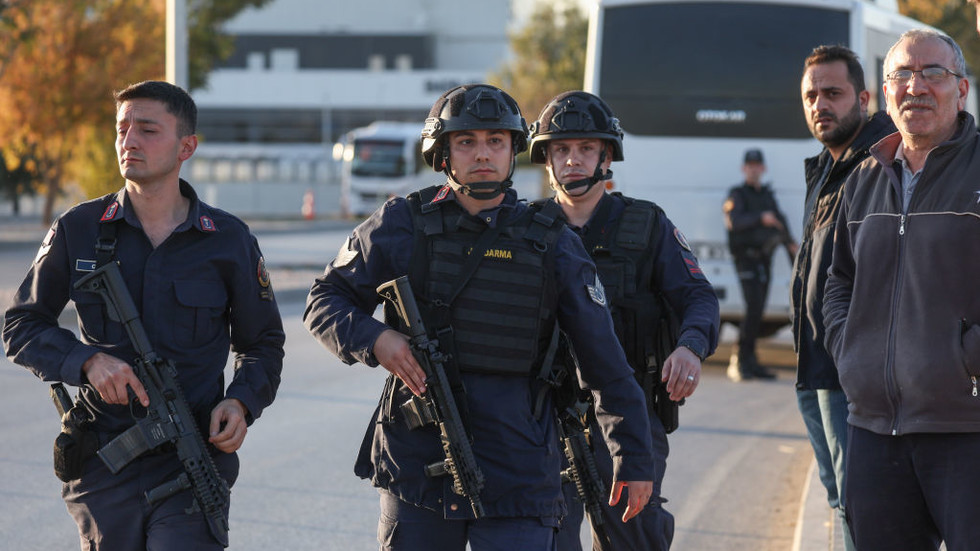On Wednesday, a shocking attack occurred at the Turkish Aerospace Industries (TUSAS) headquarters located near Ankara, resulting in the deaths of four individuals and injuring over a dozen others. The incident unfolded during a routine security shift change when three attackers launched an assault on the defense company. The Turkish Interior Minister, Ali Yerlikaya, announced that two of these terrorists had been “neutralized” by security forces, while efforts to locate a potential third gunman were ongoing. Turkish President Recep Tayyip Erdogan condemned the violence and provided details regarding the incident, emphasizing the government’s resolve to combat terrorism.
Initial reports indicated that among the assailants, one was a woman, whose identity, along with that of her male counterpart, has not yet been disclosed. Yerlikaya hinted at the possibility of a third attacker who may have detonated an explosive device, though this remains unconfirmed. He assured the public that once their identities are verified, information regarding the specific terrorist organization involved in the attack would be shared. Historically, terrorist activities in Türkiye have been linked to the Kurdistan Workers’ Party (PKK), a group that has been engaged in an ongoing conflict with the Turkish government since the 1980s.
Details surrounding the attack are still emerging, as the Turkish government has imposed restrictions on media reporting from the scene. Despite this, unverified video footage circulating on social media appeared to depict heavily armed special forces personnel entering the TUSAS facility approximately one hour after the assault commenced. Eyewitness accounts suggested a rapid police response, which likely contributed to the neutralization of two of the attackers. This reflects the ongoing challenge in managing security at critical infrastructure locations such as defense companies, especially in light of the persistent threat of terrorism in the region.
Speculation regarding hostage situations arose as reports indicated that some employees of TUSAS may have been detained during the assault. Social media platforms featured images purportedly showing a group of individuals inside the facility, but these claims have not been substantiated by Turkish officials. The lack of confirmed information regarding hostages adds to the chaotic atmosphere surrounding the attack and highlights the difficulties faced by law enforcement in addressing such incidents quickly and effectively.
In the aftermath, the Turkish government is reiterating its commitment to the fight against terrorism. Yerlikaya’s assertion that the country will not rest until “the last terrorist is neutralized” is indicative of the broader strategy to enhance national security measures. The attack at TUSAS underscores the vulnerabilities faced by defense contractors and other critical infrastructure sites in Türkiye, which may be targets for extremist groups intent on instilling fear and demonstrating their capabilities.
As investigations continue and the security forces remain vigilant, the impact of this assault on the community and the country as a whole is likely to be profound. The TUSAS attack serves as a stark reminder of the ongoing threat posed by terrorism in Türkiye, emphasizing the importance of ongoing security assessments and proactive measures to protect the population and critical assets from similar incidents in the future.

